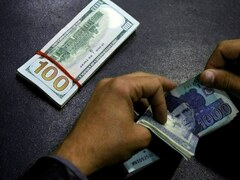KARACHI: Pakistan is at a critical juncture, facing a perfect storm of sustainability challenges that threaten the country’s future due to environmental degradation, social inequity, and economic strain.
This was discussed at media roundtable on climate change, organized by Unilever Pakistan.
Environmental expert Fatima Arshad, who is also Head of Sustainability and Business Communications, Unilever Pakisan stressed that there is need of immediate action to address these challenges, or risk losing our natural resources and compromising our future.”
She said climate change has left Pakistan reeling, with devastating floods and droughts becoming the new norm. Deforestation, pollution, and poor waste management have pushed the country to the brink of environmental disaster.
Social inequity and poverty continue to plague Pakistan, with nearly 40% of the population living below the poverty line. Access to basic services like healthcare, education, and clean water remains limited.
Pakistan’s economy is also under pressure, with rising inflation, debt, and limited industrial diversification. To address these challenges, Fatima called for scaling up government initiatives and implementing policies efficiently. She highlighted the need to encourage corporate sustainability and social responsibility to address Pakistan’s pressing challenges.
She also emphasized the importance of investing in renewable energy and reducing the country’s annual plastic waste of 3 million tons. Furthermore, she advocated for the promotion of climate-resilient infrastructure and community-based solutions as essential strategies for tackling climate change.
Fatima pointed out that when sustainability is implemented effectively, it creates a balance between environmental protection, social equity, and economic growth—factors crucial to Pakistan’s socio-economic progress.
Key statistics presented showed that Pakistan ranks 5th globally in climate vulnerability, with 40% of the population living below the poverty line.
Copyright Business Recorder, 2024























Comments
Comments are closed.